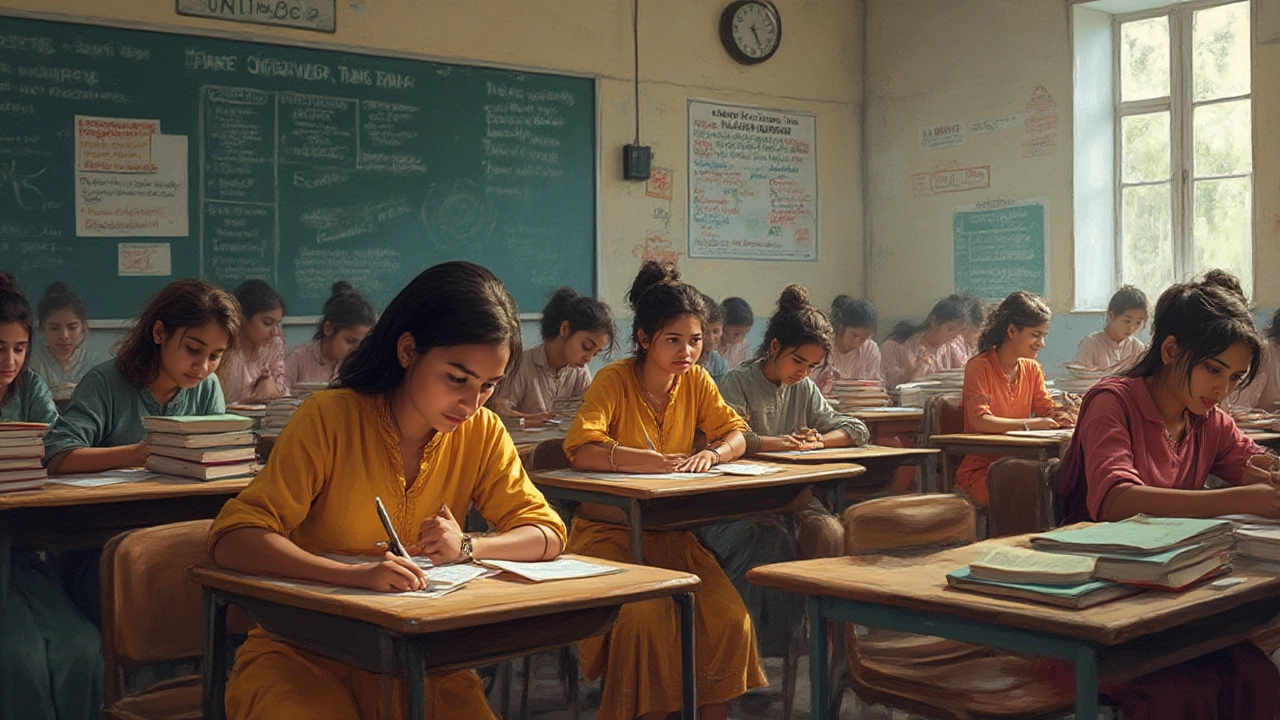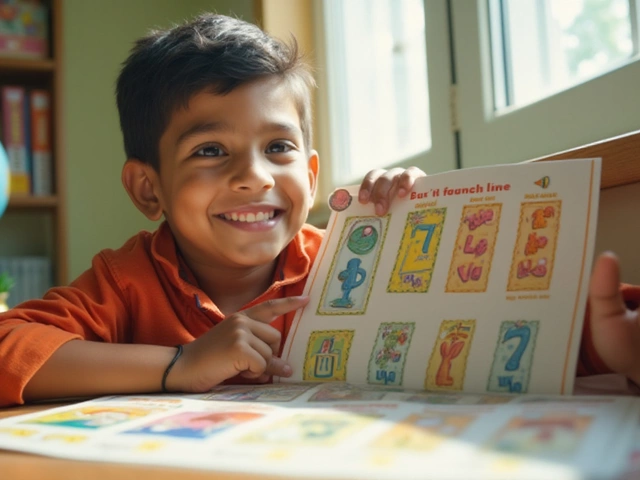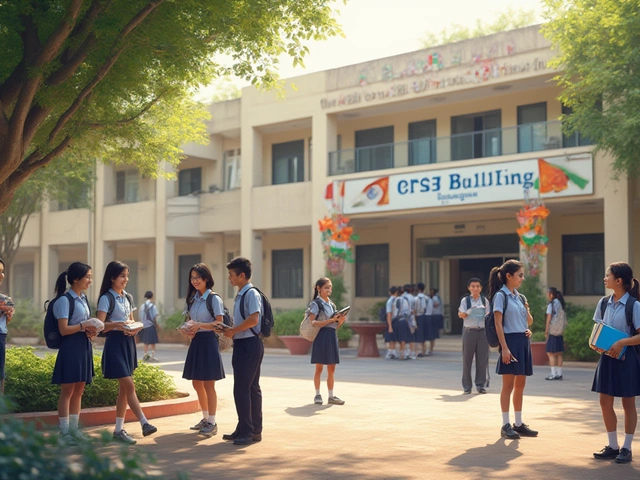
World’s Toughest Exams: Which Test Is Truly Number One?
Sit back for a second and imagine sweating over a test so brutal that almost nobody passes. There’s no shortage of tough exams out there—people love to argue about them. But which one really earns the crown for the “world’s toughest?” Ask five different people on different continents and you’ll get five answers, each with their own horror stories. The title isn’t just about impossible questions—it’s about pressure, stakes, and how failure can rip up your future. Let’s dig in. You might be surprised which exams show up, and which ones don’t even break through the top five.
What Makes an Exam the Toughest on Earth?
When folks hear "toughest exam," they picture nosebleed-level trick questions and monstrous amounts of memorization. But that’s just one ingredient. The real monsters combine mental exhaustion, ruthless time limits, and fewer winners than you’ll find at a lottery draw. Some tests, like the CFA Level III for finance or the United States Medical Licensing Exam (USMLE) Step 1, buzz with infamy in their own industries. But if we want the global heavyweight, we need an exam with insane competition, a pass rate that’s barely a single-digit number, and life-changing consequences for passing or failing.
There’s a wild difference between being hard and being “the” hardest. The test shouldn’t just trip up the unprepared; it should break the spirit of even the brightest. Consider factors like total candidates, pass rate, number of attempts allowed, and how long people prep for it. There are also cultural factors—some countries turn certain exams into national events. In South Korea, businesses open late for students to get to the CSAT. In India, parents pray at temples on exam day.
One real marker: massive personal sacrifice. Some people prepare for years—saying goodbye to social lives, hobbies, even their birthdays. Another marker? How newsworthy exam results are. For example, in China, topping the Gaokao makes the local news. Those details help us rank these exams in real terms, not just by folklore. You also have to decide if an exam is “open to all” or only for elite niches—because the toughest for the few, like the All Souls Prize Fellowship exam at Oxford (with just two possible winners every year), is a different animal from those faced by millions of students.
The Most Feared Exams: Modern Legends and Real Numbers
Few debates get quite as heated as “What’s the world’s hardest exam?” Some shout “Gaokao” (China’s National Higher Education Entrance Examination). Others point to “UPSC” (Union Public Service Commission Civil Services Exam) in India—the gatekeeper for the world’s largest bureaucracy. Japanese students will swear the Center Test (Senta Shiken) nearly ruined their lives, especially when it was still running. Others fear Oxford’s All Souls because of its all-essay format with zero guidance, or the CFA—sometimes called the “finance world’s Everest.”
Let’s meet the contenders up close, by the numbers:
| Exam Name | Country | No. of Candidates/Year | Pass Rate (%) |
|---|---|---|---|
| Gaokao | China | ~12 million | ~2% admitted to top universities |
| UPSC CSE | India | ~1 million | 0.1–0.3% selected for top posts |
| All Souls Prize Fellowship | UK | Dozens | <1% (often 2 out of 80+ applicants) |
| CFA Level III | Global | ~25,000 | ~42% (2024 data) |
| USMLE Step 1 | USA/Global | ~70,000 | ~90% (but only after brutal med school admissions) |
The Gaokao lasts two days, tests knowledge crammed into multiple subjects, and in some provinces determines the course of every student’s adult life. Stories float around each year: kids taking the exam from hospital beds, parents camping outside with food, towns painted with banners cheering students on. The raw competition is staggering: from 12 million test-takers, only a sliver reach “Tier 1” schools like Tsinghua or Peking University.
Now glance at India’s UPSC—the exam for (arguably) the most powerful government jobs in the world’s largest democracy. It takes a year to complete, with multiple rounds: a Preliminary, a massive Mains paper, and an Interview. The questions can cover law, government, philosophy, current affairs, even ethics. The unspoken rule: if you’re not reading newspapers for at least two hours daily, you’re lagging. More than 1 million people apply; a few hundred actually become Indian Administrative Service officers.
On the other side of the world, Oxford’s All Souls Prize Fellowship ditches multiple-choice in favor of pure intellect—essay questions you sometimes can’t even prepare for. Past prompts are legendary: “Is war necessary?” or “What is the use of magic?” Those who pass usually become world-renowned academics—but the odds make the lottery look generous.
The CFA and USMLE are legendary within their professions, but with narrower entry and higher initial selectivity. The CFA, for instance, is often called the “finance industry’s toughest badge”—and for mid-career adults, it’s a grueling ride. The pass rates look high—until you realize most candidates are already top-of-class professionals and many fail multiple times.

The “Number One”: Where the Gaokao Stands (and Why)
So, after all the dust settles, which of these monsters wins the nastiest, hardest test title? Statistically, it’s hard to beat the Gaokao. The size, stakes, and the way the whole country’s life seems to freeze for it—nothing else comes close.
Let’s break down what makes the Gaokao king:
- Scale: Over 12 million students take it in one go every June.
- Pressure: For most, a single chance at this exam shapes their entire future. No retakes for a full year, and in many families, “second chances” aren’t an option.
- Variety: The test isn’t just math and language. Candidates face history, chemistry, politics, sometimes even physical education. The questions often aren’t just about recall, but solving multi-step real-world problems.
- Inequality: Different provinces set their own scoring curves, so even if you ace your section, you might lose out because of where you live.
The stories are wild: in 2019, one student took the Gaokao 12 times to get into his target university. Parents sometimes quit work to cook for their kids during preparation years. Streets go silent during exam time—even construction sites shut down to keep noise away. If that’s not a pressure cooker, nothing is.
But the Gaokao isn’t just academic pain. Pass, and you’re set for life, with job offers and better marriage prospects. Fail—and many see their dreams slam shut. It’s not just about knowledge; it’s about resilience, mental health, and, sometimes, sheer luck (typhoons and train breakdowns have affected candidates before). Unlike the SAT or ACT, the Gaokao isn’t designed for second tries. A single slip—or pair of trembling hands—means starting over or settling for “second-ranking” colleges, which impacts earnings for life.
The UPSC has a lower acceptance rate for elite posts and is known for requiring encyclopedic knowledge—but it’s open to only graduates, and multiple attempts are allowed. It’s more a marathon, not a do-or-die sprint. The CFA, All Souls, and USMLE? Every one is unforgiving, but the global stakes just aren’t as all-embracing as the Gaokao.
If You Have to Attempt a “World’s Toughest” Exam: Survival Guide
So what if, tomorrow, you found yourself needing to tackle one of these monsters—Gaokao, UPSC, or otherwise? Never mind you’re not in high school in China or dreaming of the IAS in Delhi. Here are tips learned (sometimes the hard way) from people who faced them:
- Start Early—Way Earlier Than Feels Normal: Gaokao champs and UPSC toppers usually start prepping two years in advance, sometimes longer. Don’t underestimate how much you need to review. Create a schedule—yes, old-school pen and paper—and stick to it.
- Attack Past Papers Relentlessly: Whether it’s the Gaokao or the CFA, hunting down previous year tests is a game-changer. Not just for practice, but so you understand how questions “think.”
- Limit Information Overload: There’s too much to know, and there’s a real risk of burning out. Prioritize core subjects and only go deep when you can master the basics. For UPSC and USMLE especially, focus on core frameworks and high-frequency concepts.
- Mental Health Matters: These exams have broken some incredibly talented people. Sleep, eat real meals, and take true breaks. Many top scorers worked exercise or short walks into daily routines. The point? Don’t make your bed in the library.
- Test Yourself, Not Just Study: Rereading notes isn’t enough. Simulate real timed exams, under real conditions. Compete with friends, join groups, or just pit yourself against the clock.
- Family Support Is a Secret Weapon: Notice how nearly every Gaokao success story involves family pitching in—from grocery runs to late-night pep talks. Allies help; isolation hurts.
- Be Ready for the Unexpected: Power cuts, noisy neighbors, illness—they all happen. Build resilience. Learn to recover from a bad day and return sharper for the next round.
- Accept the Stress—Don’t Try to Eliminate It: These exams are tough because they’re supposed to be. Juice it—stress sharpens if it isn’t overwhelming. Channel frustration into focus.
Every year, a handful of teachers, coaches, and former toppers give similar advice on national TV in both China and India: breakthroughs come not through secret techniques, but relentless, boring, everyday routine. If you’re gunning for the world’s most difficult exam, you might as well make routine your best friend—and remember that, in the end, it’s just a test. Yes, the Gaokao or UPSC can upend your life, but nobody’s future is set in stone from a single piece of paper. That’s one lesson none of the manuals teach you.






Write a comment